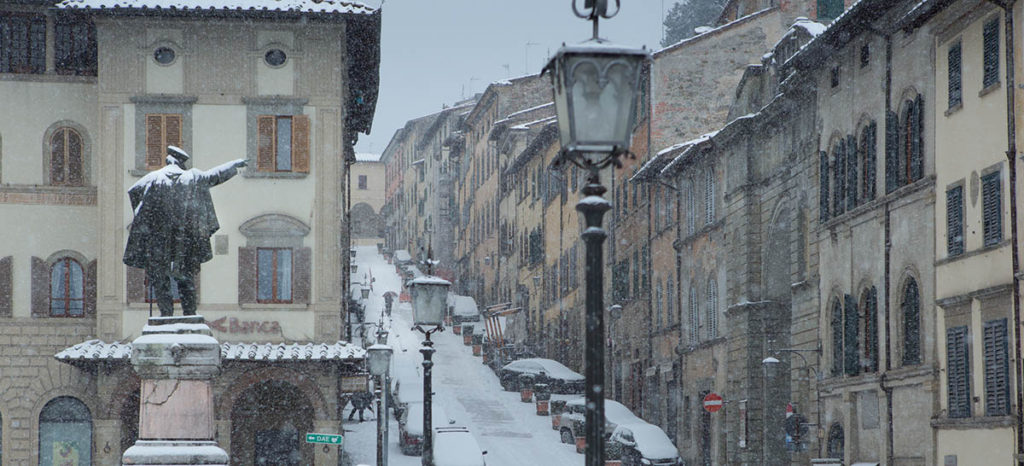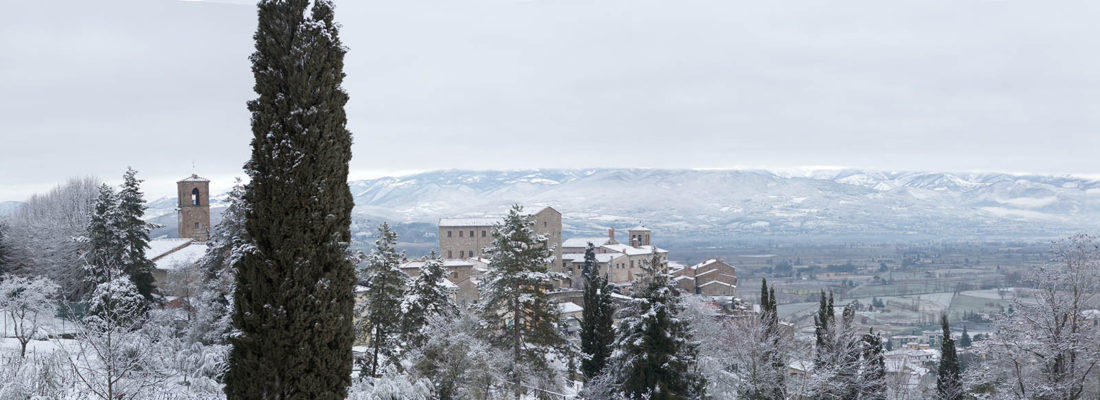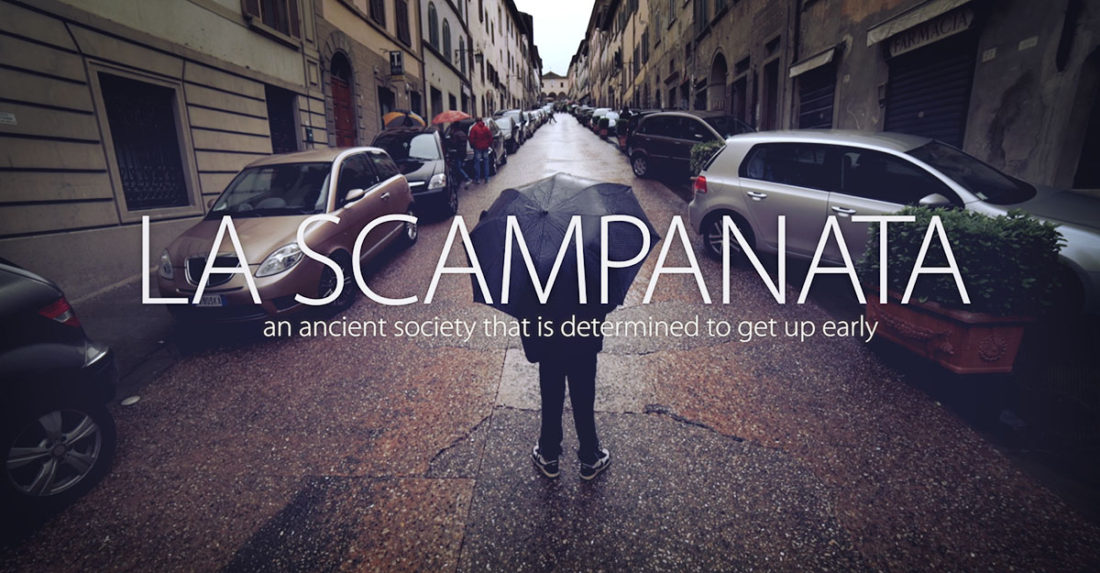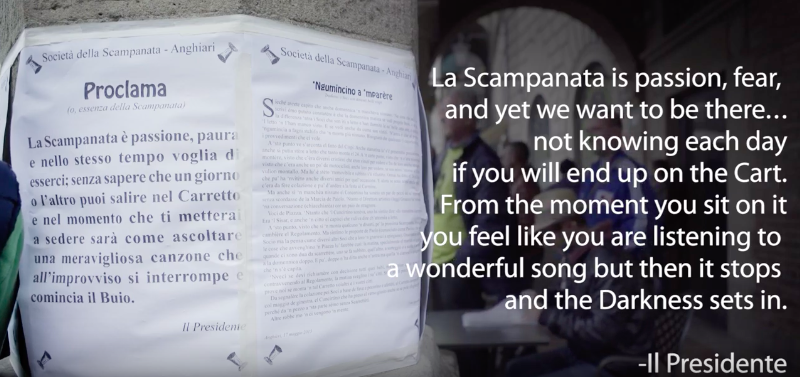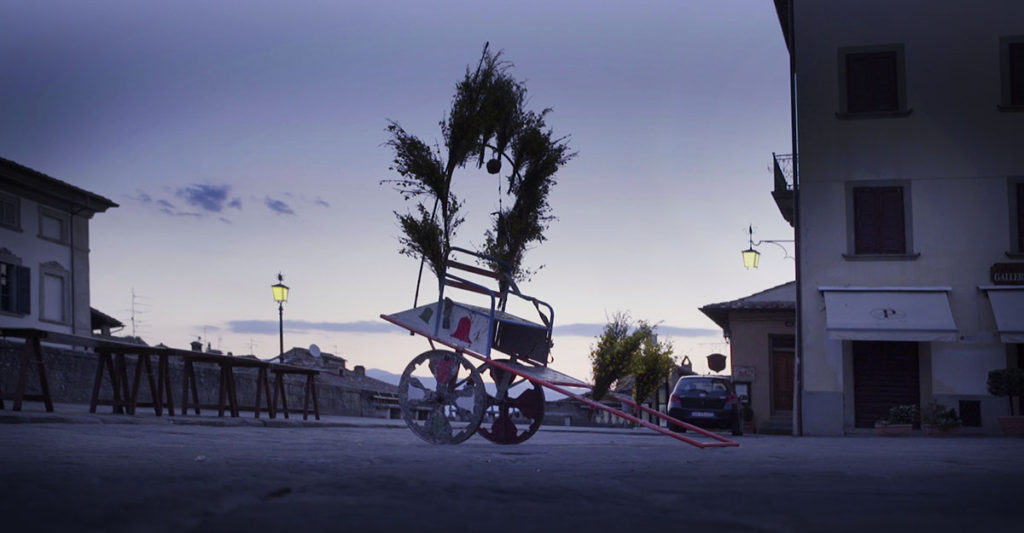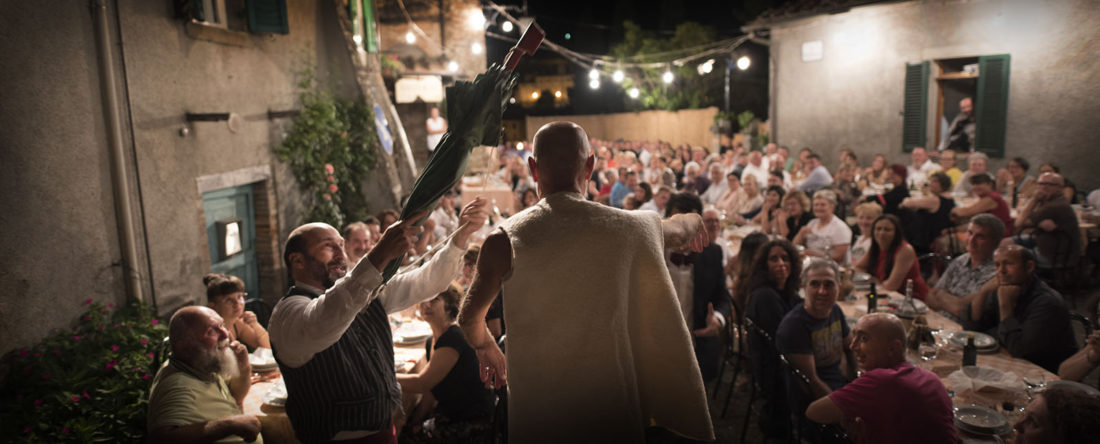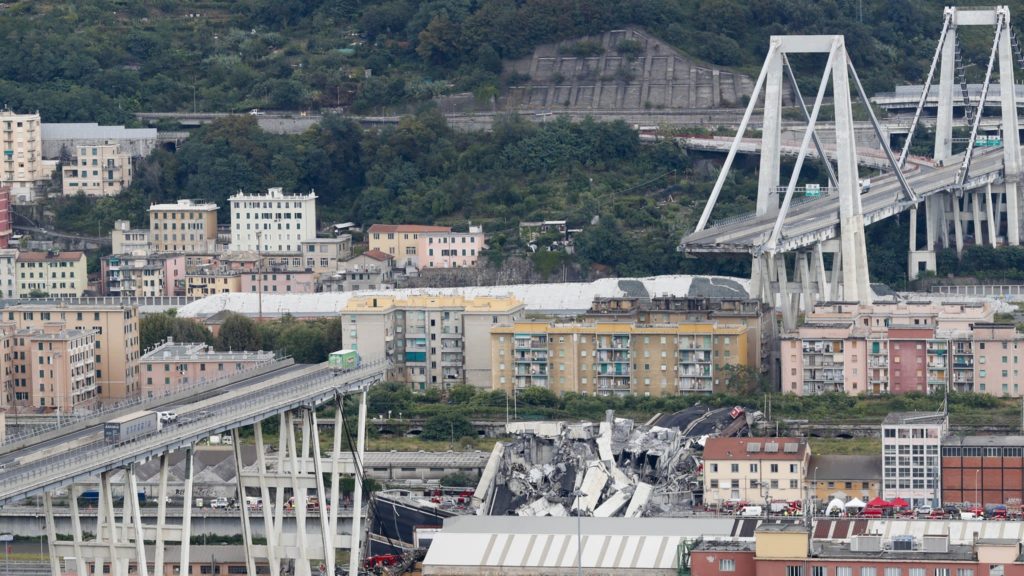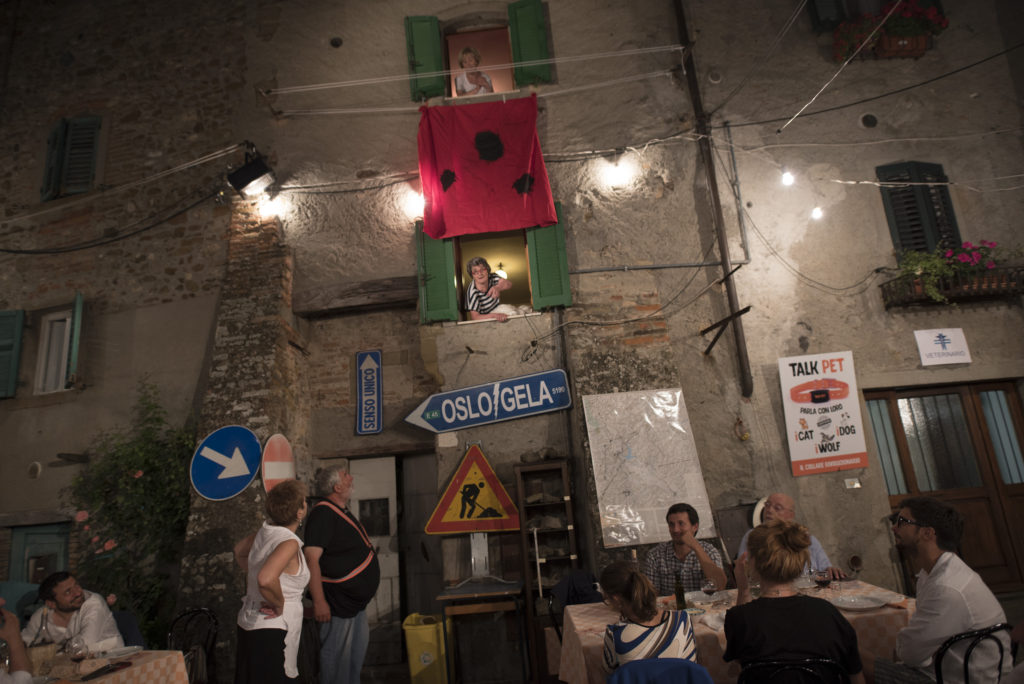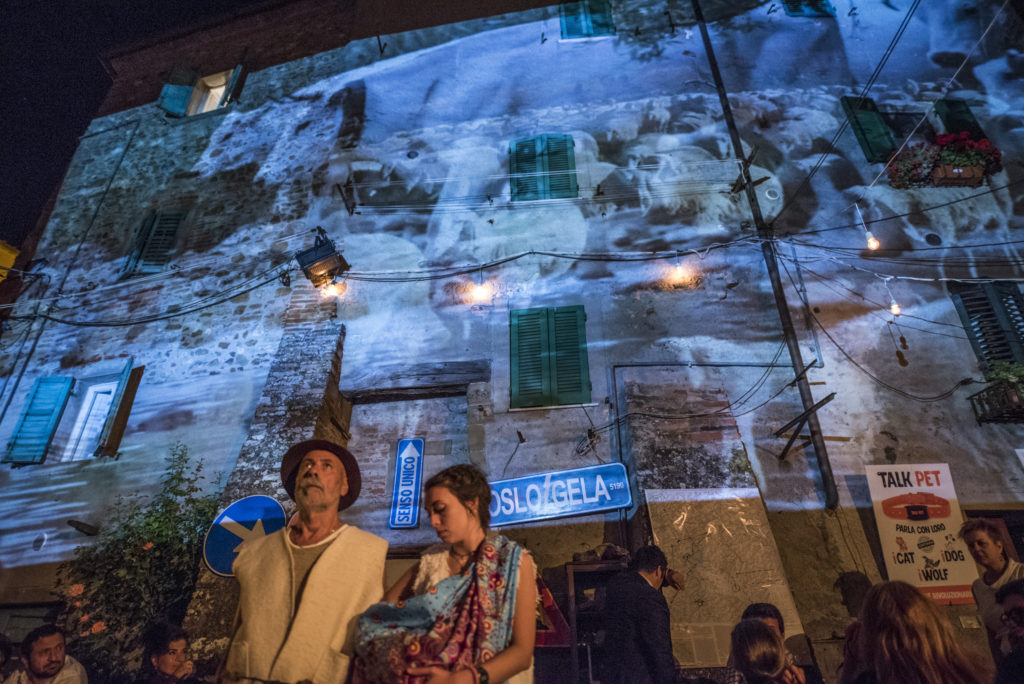Would you just look at that
Almost ten years ago, when we moved here, I wondered if my sense of being gobsmacked by beauty several times a day would last or if I would just grow used to it. If anything, it has grown stronger.
I’ve been surprised that our appreciation is matched or even bested by the Italians bred, born, and raised surrounded by such beauty. I’m in a couple members-only Facebook groups for the village where the main topic of conversation is how beautiful it all is, accompanied by lovingly taken photos. These will be followed by a few dozen comments laden with beating heart gifs and responses like “Spettacolo!”. The mayor often chimes in. (The community gets most of its news from the mayor’s personal Facebook posts — you have to be friends — usually leading with a Covid update for the town, and followed by cheery reports about a new sidewalk going in or improvements to the basketball court. He’s the first non-Communist mayor since The War so he has a lot of suspicion to overcome.)
This love of place all came to an exciting head over the last few weeks when the village found itself in a social media competition for the Most Beautiful Village in Tuscany. We are far off the tourist map, unlike places like Cortona, Montepulciano, or San Gimignano which, in the humble opinion of the village, have ceased to exist in any meaningful way except as tourist destinations. Despite our lack of fame we somehow ended up in the semi-finals against Volterra, a shocking turn of events. All stops were pulled out as pleas went out to everyone in the village to flood the competition with their favorite village photos. We won that round and were in the final competition against Massa Marittima. They have just a few things to their advantage — a cathedral, prehistoric artifacts, a castle from the 9th century, a church founded by St. Francis himself, and a vantage point on the Mediterranean, but the villagers fought a strong social media war of images and vote coercion of friends and family and WE WON!! It even made the national papers. Now we can get back to the real work at hand deciding with the mayor how high the basketball hoop should be on the newly repaved courts.
Not that there aren’t the fair share of box stores and car lots around here, but it matters that we live in the shadow of a thousand-year-old village in a beautiful valley. Untouched nature is breathtaking but there’s something about the long interplay between people and the land that floats my soul. That the village is constructed of stones that were sitting right here so that the color is perfectly matched to the surroundings. The tiny cobblestone streets worn down in the middle by centuries of foot traffic. The patterns that the plows make in the rolling fields. This all matters deeply to me.
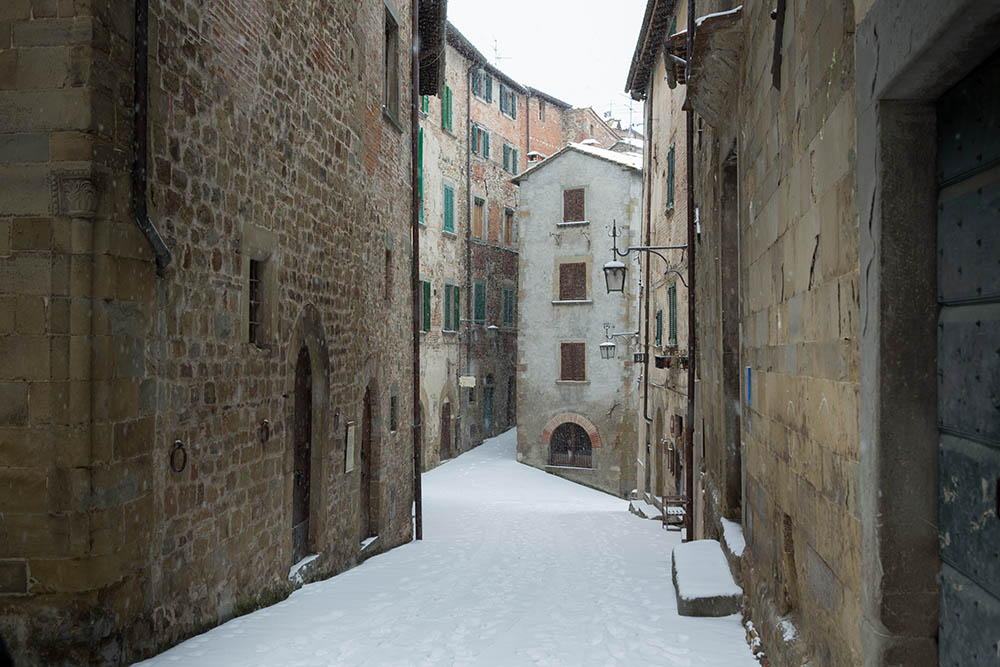
There’s also beauty in sound. I love falling asleep to the noises of owls, foxes, deer, and wolves, and waking up to the sound of roosters and church bells. I know many would fight me on the last two but I am adamant that roosters and church bells are lovely sounds at just the right distance — so they don’t wake you up but you can appreciate them when you are awake.
It’s not just me. John, of course being the epically visual guy he is, is constantly touched. But it does surprise me a little that the kids notice and comment so frequently. Those moments when we’d be driving an angsty teen to high school and they’d point out the window and say “would you just look at that.” I was driving Sebastian to the airport to return to school in the UK last September and I stopped the car so that an old man could cross the street, pushing his bicycle. After he crossed in front of the car he stood in front of an old stone building in his oversized puffer jacket, gave us a huge smile and a wave, and then pushed off on his ancient, bright pink bicycle. Sebastian’s comment, “That was beautiful.”
In this odd moment we find ourselves in let’s never forget how important it is to appreciate the beauty around us, be it the steam from a cup of coffee, fog over a valley, or a smile from a stranger on a bicycle.
